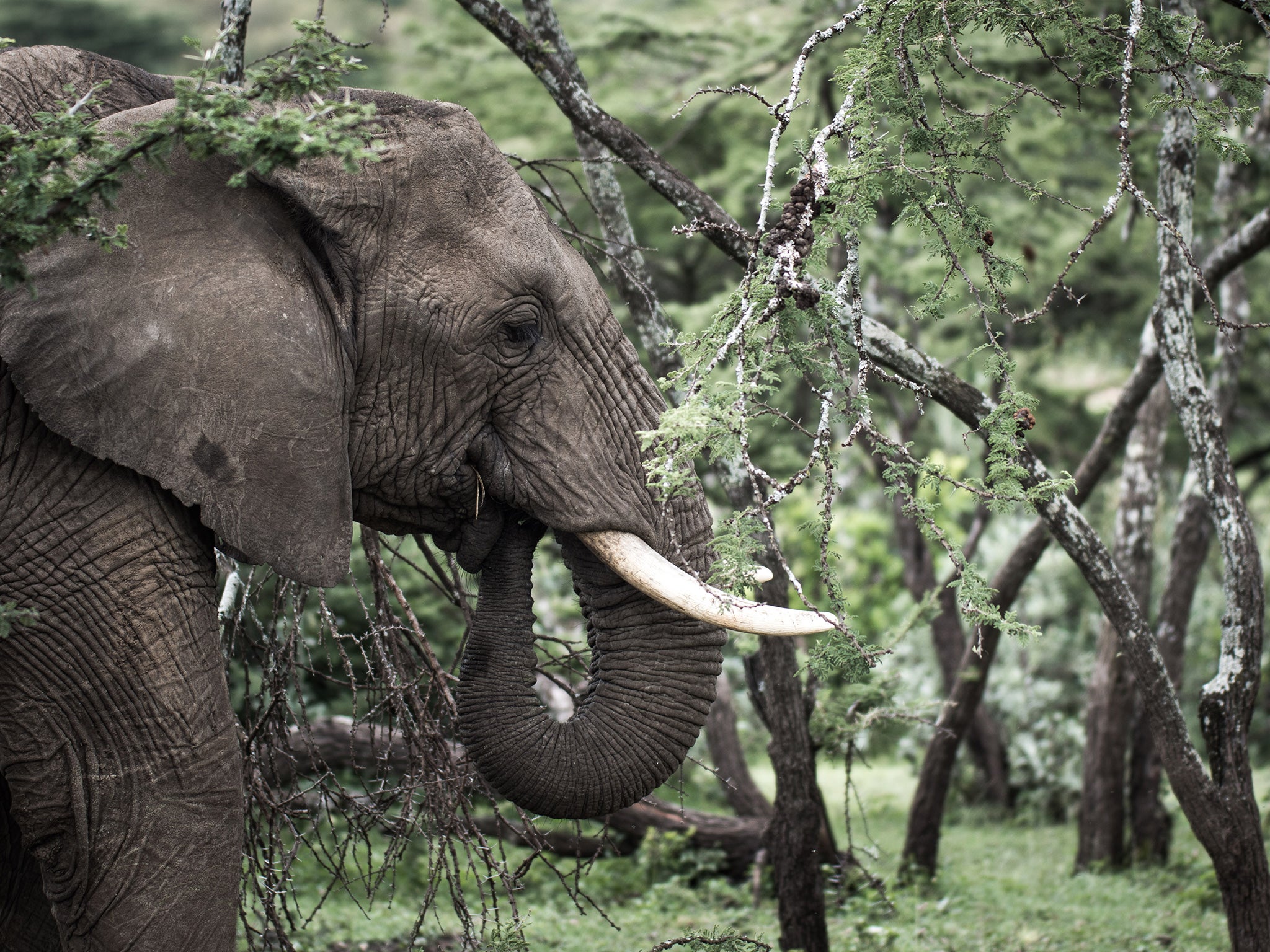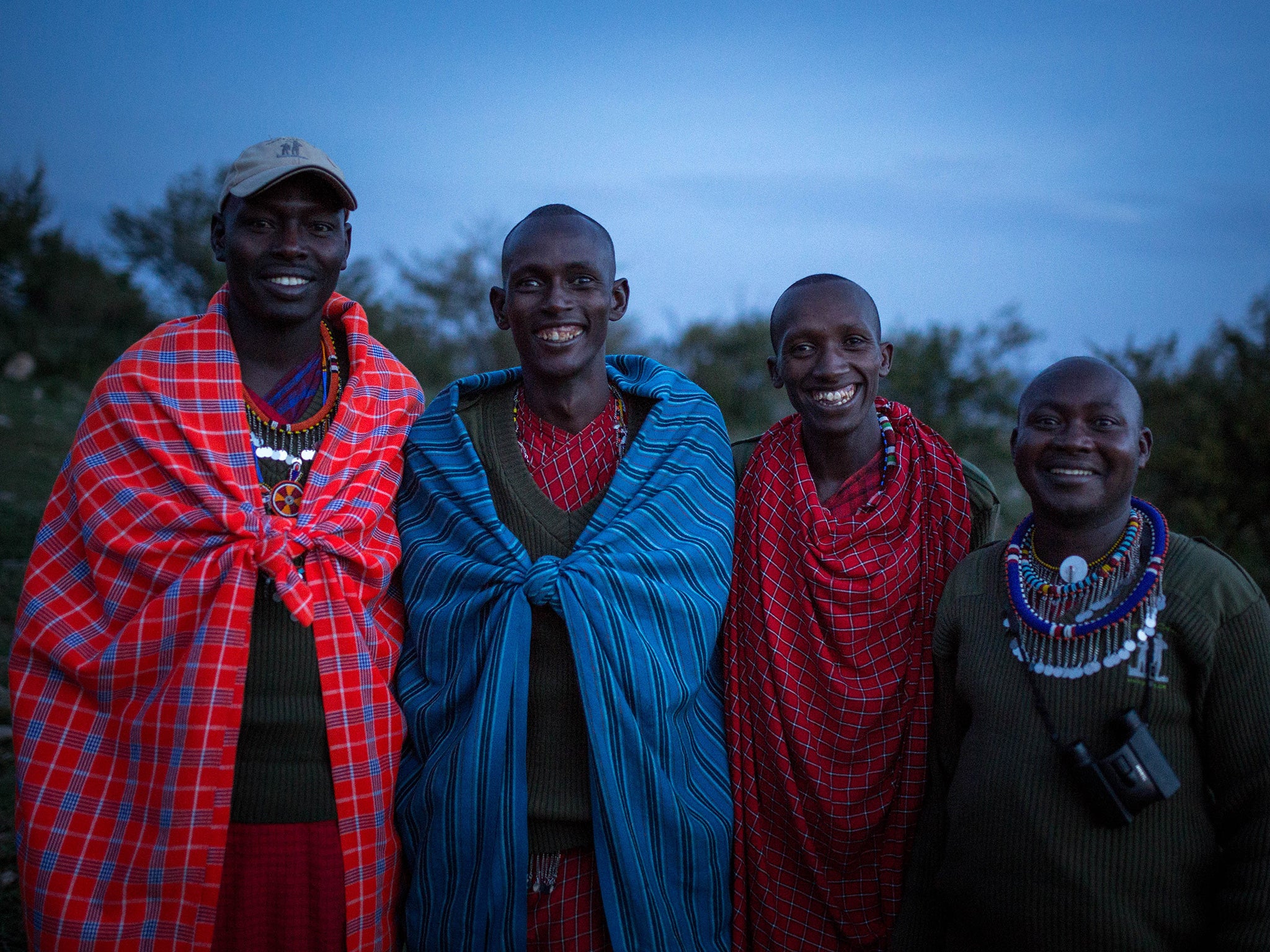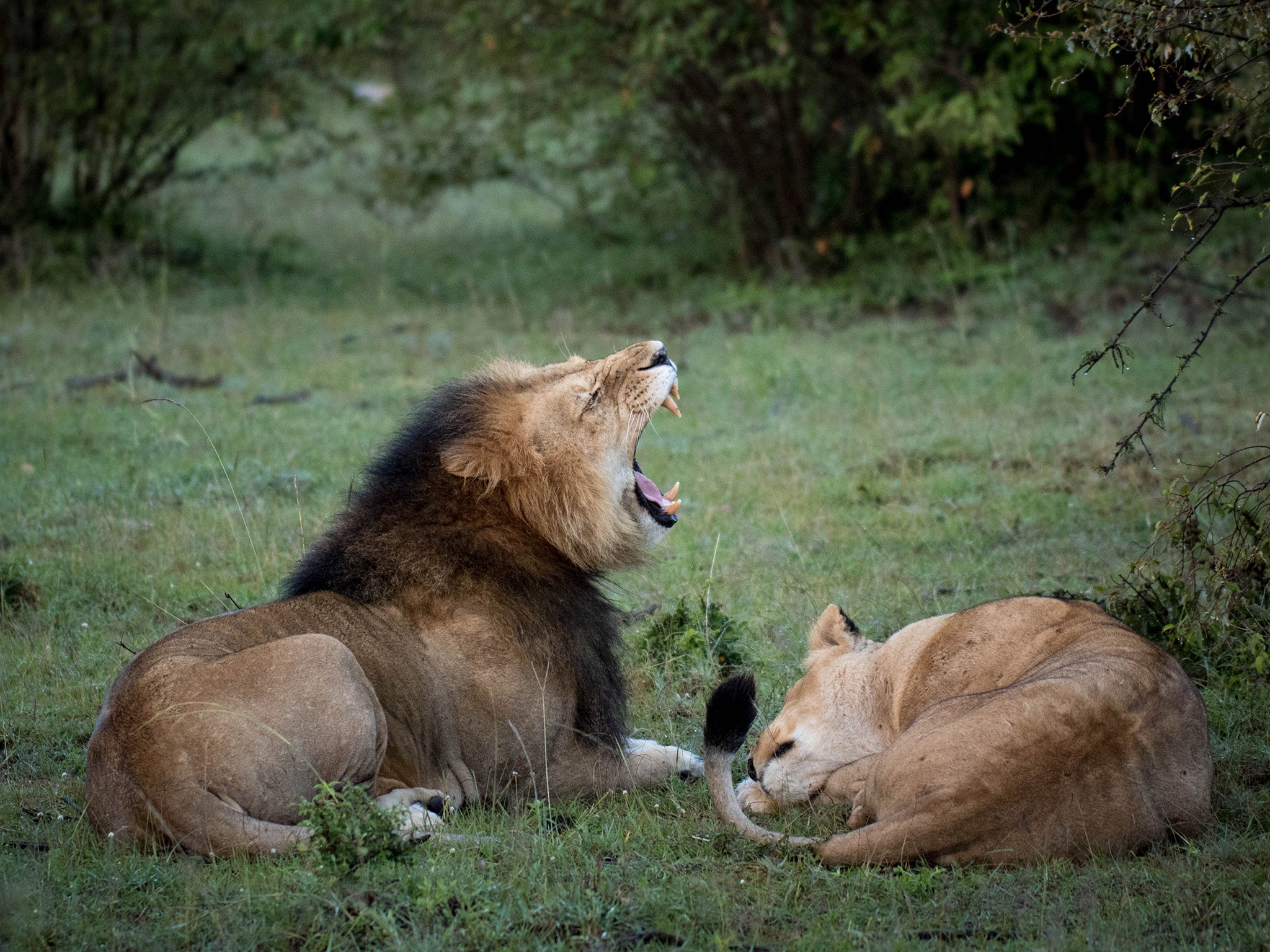Giants Club: The new 'conservancy' conservation concept giving Kenya’s local communities jobs, income and a brighter future
The idea has been hailed as defining a new era of ecotourism in the East African country

Your support helps us to tell the story
From reproductive rights to climate change to Big Tech, The Independent is on the ground when the story is developing. Whether it's investigating the financials of Elon Musk's pro-Trump PAC or producing our latest documentary, 'The A Word', which shines a light on the American women fighting for reproductive rights, we know how important it is to parse out the facts from the messaging.
At such a critical moment in US history, we need reporters on the ground. Your donation allows us to keep sending journalists to speak to both sides of the story.
The Independent is trusted by Americans across the entire political spectrum. And unlike many other quality news outlets, we choose not to lock Americans out of our reporting and analysis with paywalls. We believe quality journalism should be available to everyone, paid for by those who can afford it.
Your support makes all the difference.An alternative approach to wildlife conservation in Kenya called ‘the conservancy concept’ is helping to create a sustainable future for animals, local communities, the environment and visitors alike for the very first time – and the son of British emigrants to Kenya is one of those at the forefront of the movement.
Jake Grieves-Cook’s parents moved to Africa in 1948; he grew up and went to school in Kenya where has now been involved in the country’s safari tourism industry for over 40 years. He runs the award-winning Porini eco-camps in Nairobi National Park, Laikipia, Amboseli and the Mara, including at Ol Kinyei Conservancy, which borders the north-east corner of the Maasai Mara National Reserve – famous for its incredible array of wildlife, from lions and leopards to cheetahs and wildebeest.
His site is one of 140 conservancies across the country operating on land leased from local communities.
The idea has been hailed as defining a new era of ecotourism in the East African country, and has proved such a success there are now more than 7.5 million acres of conservancy land across 22 counties.
Conservancies mean local communities benefit directly from the use of their land and willingly host and protect wildlife populations, reducing the incidence of human-wildlife conflict, which has been known to arise from poaching, farming and the construction of infrastructure.
Mr Grieves-Cook has served on the board of the Kenya Wildlife Service, which runs the country’s national parks, and served as Chairman of the Kenya Tourist Board from 2004 to 2010. He says the initiative is benefiting the communities who own land alongside government-owned parks and reserves by giving them the opportunity to earn income and livelihoods from conserving wildlife by putting their parcels of land together to form wildlife conservancies.
“The conservancy concept enables landowners to benefit from allowing their land to be set aside for wildlife and to earn a regular monthly income stream from rents paid per acre for their plots of land,” he said, “as well as to have employment opportunities for their family members as rangers in the conservancies and through staffing the camps”.
“It provides an expanded area of protected habitat for the wildlife where tourist numbers are strictly controlled through our formula of no more than 12 guest tents per camp and a maximum of 1 tent per 700 acres and 1 tourist vehicle per 1400 acres. And it provides an enhanced safari experience for visitors with high-quality guiding and excellent wildlife viewing away from the tourist crowds.”

Conservancies are also said to be better for visitors as visitor numbers are strictly controlled, guaranteeing a personal, exclusive safari experience. They also reduce stress and disturbance of the wildlife population, supporting the repopulation of areas and land transformation.
Kenya’s conservancy concept was devised as a means to address the escalating issue of lost indigenous habitats, through the division of land, over-grazing and intensive farming. The idea has recently gained momentum; it has had such a profound impact on the country’s conservation practice that the term was recently legally recognised for the first time in the Wildlife Act 2013.

The renowned elephant conservationist Cynthia Moss recently described the establishment of conservancies in Kenya as “the single most successful conservation initiative since the creation of national parks in the 1940s”. She added, "conservancies protect land for Kenya’s wildlife and, even more important, create sanctuaries of safety. In addition, conservancies bring benefits in the form of direct payments and jobs to the people who share their land with wildlife.”
Mr Grieves-Cook added that the approach was also conserving Kenya’s spectacular flora and fauna outside of parks and he and his team are keen to spread the word to encourage more communities to follow suit.
He added: “Visitors have quickly learnt that staying in small camps inside the conservancies offers a very rewarding experience and the word is spreading that this is one of the best ways to go on safari in Kenya and that it is contributing to conservation as well as to making it possible for benefits to reach the communities.”
For more information, and for a brief history of conservancies in Kenya, visit http://kwcakenya.com/
This article was provided by the Kenyan Wildlife Service to promote a greater understanding of Kenya and its natural wonders to an international audience.
- For more about the Giants Club: independent.co.uk/voices/campaigns/giantsclub
- To donate to Space for Giants: spaceforgiants.org
- Corporate donors looking to partner the Giants Club should contact: giantsclub@spaceforgiants.org
Join our commenting forum
Join thought-provoking conversations, follow other Independent readers and see their replies
Comments